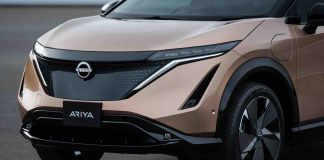There is light at the end of the tunnel – in fact, I can almost hear the spitting and popping of my soon-to-be operational S1’s two-stroke engine. But first, a segue into the cosmetics. I just got word from Craig over at Precision Motorcycle Painting that my tank, side covers and tailpiece are done. This – the painting (and cleaning/sealing of my gas tank) I farmed out because although I can do a decent job painting a frame (semi-gloss black hides many sins) I am not the man to paint a tank righteously, as Craig most obviously is. 
Here is what I started with. These pieces are not original to the S1. My original parts were either missing (side covers) or had crossed the event horizon – beyond economic rehabilitation. So, I used the bodywork from the donor S3. This inexplicably low-miles (2,302 on the clock) bike was in very solid shape, including the bodywork and tank. Externally, it was faded, but free of dings, dents and – most critically – significant rot. My bike’s original tank had a paper-thin bottom section because it had been left to sit for the past 10-plus years with a quarter tank of fuel in it. It would have required a lot of welding – and a lot of money – to make it usable.
A major stumbling block with old Kaw triples is finding a decent – usable – tank. They are not reproduced (yet) so you either have to have a decent one, or find a decent one. Mine was extremely decent on the outside, but inside was another story. A previous owner had Kreemed (sealed) the tank. Badly. The sealer had been applied on top of rust, and by the time I acquired the tank (and bike) the Kreem coating was hanging off the insides like deteriorating wallpaper. It also need a new gas cap, but that was easy and incidental. 
Tank rehab is not an area for cheaping out – or making beginner mistakes. There are few things more miserable, more frustrating, than spending many months and many dollars rebuilding a bike, installing a fresh engine and newly rebuilt carbs – and having it run poorly (and perhaps not at all) as a result of feeding it a steady diet of rust flakes and decomposing tank sealer that you didn’t remove entirely.
So, off to Craig at Precision. He de-gunked and re-sealed the tank, prior to painting it (and the other parts) in period/year-correct Halibut Blue. One of the things I really dig about ’70s-era motorcycles is the color/stripe schemes. They’re visually obstreperous, just like the bikes themselves. Kawasaki stuff from that period in particular. Lime greens, blazing blues, ballsy burgundys – and yes, even chocolate brown metallics. These colors also just work with the rest of the palette – all that exposed aluminum and polished steel, with just enough chrome accenting. I could (and do) stare at these works of industrial art for hours at a time. 
Craig took a lot of time and trouble to get the color right. And this is no easy thing, in part because of the surprising variation, bike-to-bike, that existed when the S1 was new. In those days, unlike these days, uniformity was the exception rather than the rule. Paint was not applied by automation, by robots that never got tired, or had a hangover from the night before. Different painters – and different conditions on different days – resulted in slightly different color shades/appearance, even on identical models sitting side by side on the dealer’s showroom floor. Fast-forward almost 40 years and ascertaining what, exactly, was the “right” shade for a particular bike – not the name of the paint used, but its actual end-result color – becomes a matter of some conjecture. Craig and I reviewed multiple paint chips and samples, each of Kawasaki Halibut Blue – and each just slightly different. A bit more depth, here. Some more metallic sparkle, there. I selected the version of Halibut Blue I liked best – which Craig says (and I agree with him) is the only “right” color for your bike.
Craig also added the year-correct decals for the tank and tail. I have a pair of NOS “25o” badges for the side covers, ready to install. On my bike – an S1C – these are white with black edging. Earlier S1’s had yellow with black and, beginning in 1976, the S1250 officially became the KH250 (in the U.S.) and has badges (white also) that say that. And, the piece d’ resistance, a new (NOS) chrome gas cap, with new rubber seal, will add the finishing touch and keep gas from sloshing all over the new paint. 
I’m still going to need a new/NOS or reproduction tail-light as my original, though intact, looks tired now and would look obviously awful installed in the freshly painted tailpiece.
But, it’s a long way from where things were just a few months ago. 
The last major cosmetic issue to resolve is the seat. I have a near-perfect pan (another hard-to-find item for these bikes) as well as good foam under the original cover, so it’s just a matter of ordering the readily available reproduction cover and having a good seat man do the deed.
That – and re-assembling the engine, of course. Look for a new installment on that soon!
Throw it in the Woods?









